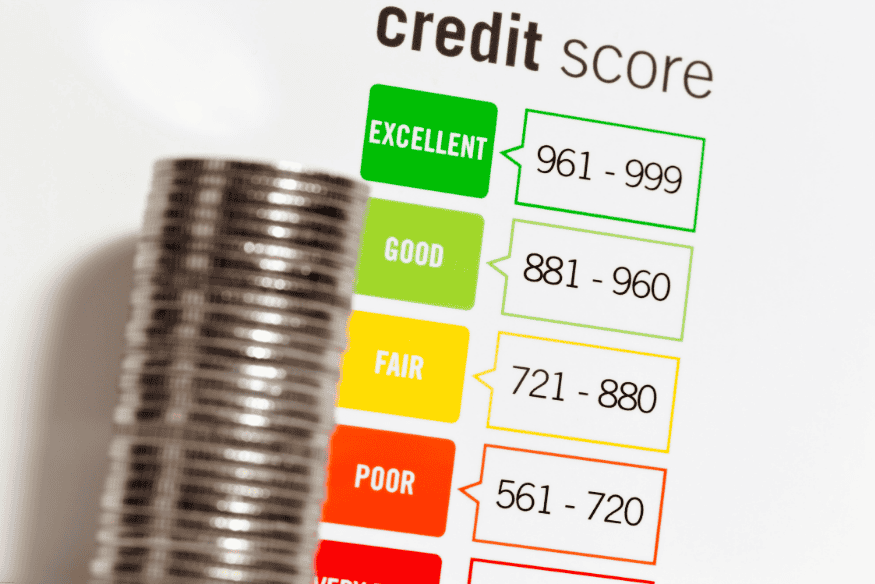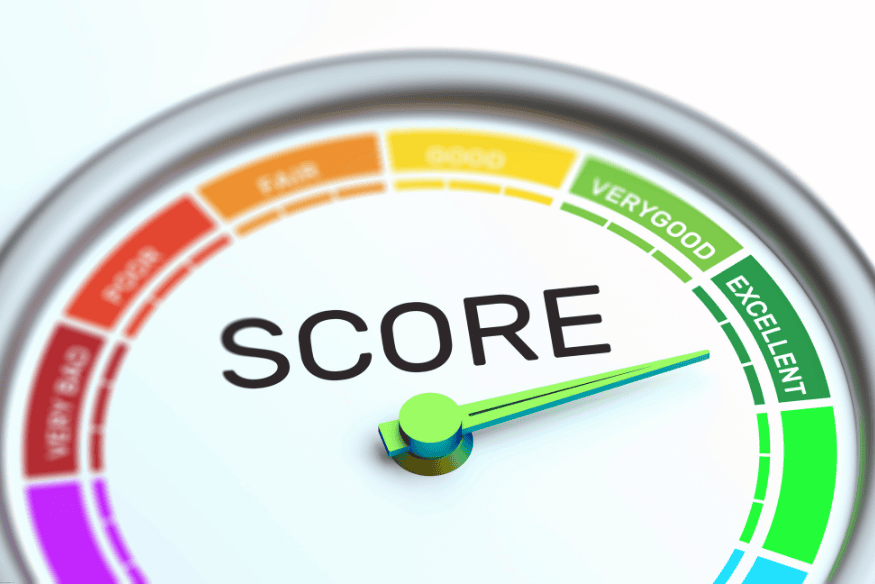Your credit score is key to your financial health. It affects your ability to get loans and credit at good rates. Using credit cards wisely is a top way to improve your credit score.
By handling your credit card well, you show lenders you can manage credit. This can help your score grow over time.
A good credit score can lead to more financial benefits. You might get lower interest rates on loans and better credit card deals. It’s important to know how actions like making payments on time and keeping credit use low can really boost your financial standing.
Key Takeaways
- Using credit cards responsibly can help build your credit.
- A good credit score can lead to lower interest rates on loans.
- Timely payments and low credit utilization are key to improving your credit score.
- Managing credit card usage effectively demonstrates creditworthiness.
- A strong credit score opens up better financial opportunities.
Understanding Credit Scores and Their Importance
In Finland, knowing your credit score is key to smart money choices. Your credit score is a three-digit number that shows how reliable you are with money. It’s important for getting loans and credit cards.
What Makes Up Your Credit Score
Your credit score is based on several things, with payment history being the biggest part—35 percent. This means how well you pay bills really matters. Other things like how much credit you use and how long you’ve had credit also count. A higher credit score means a better financial history, helping you get credit at better rates.
Why Your Credit Score Matters in Finland
In Finland, your credit score is important because it affects your loan and credit card chances. Lenders look at your score to decide if they should lend to you. A good score can get you better rates and terms. But a bad score can limit your options. Keeping a good score means more financial freedom and security.
How Credit Cards Impact Your Credit Score

Managing your credit cards wisely is key to a good credit score. Your credit score tells lenders if you’re reliable with money. Knowing how credit cards affect your score helps you make better choices.
Positive Effects of Credit Card Usage
Using credit cards right can help your score. Making on-time payments shows you can handle credit well. Keeping your balance low also looks good to lenders.
Having credit cards for a long time can also help. Older accounts show you’ve been responsible with credit. This is good for your score.
Negative Effects to Watch Out For
But, using credit cards wrong can hurt your score. Maxing out your cards is a big mistake. It means you’re spending too much and can lower your score.
Missing payments is another bad move. It can lead to late fees and a lower score. Applying for many cards at once is also risky. It can make lenders think you’re taking on too much debt.
Selecting the Right Credit Card to Improve Credit Score
Choosing the right credit card is key when you’re trying to build your credit. The right card can help you start or improve your credit history. This opens doors to better financial opportunities.
Types of Credit Cards for Credit Building
There are many credit cards that can help with credit building. Secured credit cards are great for beginners. They require a deposit, which becomes your credit limit, and are easier to get.
Student credit cards are also a good choice for students. They’re made for students without a credit history. They often have easier approval rules.
- Secured credit cards for those with poor or no credit
- Student credit cards for those in educational institutions
- Unsecured credit cards for those with a decent credit score
What to Look for in a Credit-Building Card
When picking a credit card for building credit, look for certain things. Cards with low or no annual fees are cost-effective. Low interest rates are also good, especially if you carry a balance.
It’s also important that the card reports to credit bureaus. Make sure the issuer sends your payment info to the big credit bureaus. This is key for building your credit history.
- Check for annual fees and interest rates
- Verify that the issuer reports to major credit bureaus
- Consider the credit limit and potential for increases
Essential Credit Card Habits That Boost Your Score
To boost your credit score, it’s key to adopt certain credit card habits. These habits show you’re financially responsible. By adding these habits to your daily routine, you can greatly improve your creditworthiness over time.
Making Payments on Time
Making timely payments is crucial for a healthy credit score. Always pay at least the minimum by the due date to avoid late fees and negative marks. Payment history is a big part of your credit score, so use payment reminders or autopay to never miss a payment.
By always paying on time, you show lenders you can handle your debt well.
Keeping Low Credit Utilization
Keeping your credit utilization rate low is also key. Try to keep it below 30 percent, as high utilization can hurt your score. For example, if your credit limit is €1,000, aim to keep your balance under €300.
Low credit utilization shows lenders you can manage your credit well without overextending.
Maintaining Older Accounts
Maintaining older accounts is also good for your credit score. Keeping older credit cards open shows a long history of credit responsibility. Avoid closing old accounts, as this can shorten your credit history and hurt your score.
By adopting these essential credit card habits, you can improve your credit score and financial standing in Finland.
Strategic Ways to Improve Credit Score with Existing Cards
Improving your credit score is easier than you think. You can do it with the credit cards you already have. By using them wisely, you show lenders you’re good with money. This can boost your score over time.
Requesting Credit Limit Increases
One smart move is to ask for a higher credit limit on your cards. This lowers your credit use ratio, which is good for your score. For example, if you owe $300 on a $1,000 limit card, you’re using 30% of your credit. Raise the limit to $1,500 and your ratio drops to 20%.
To ask for a limit increase, call your card issuer. Be ready to talk about your income and credit history.
| Current Limit | Balance | Utilization Ratio | New Limit | New Utilization Ratio |
|---|---|---|---|---|
| $1,000 | $300 | 30% | $1,500 | 20% |
| $2,000 | $600 | 30% | $3,000 | 20% |
Becoming an Authorized User
Being an authorized user on someone else’s card can also boost your score. This works best if the main cardholder pays on time and has good credit. You’ll get credit for their good habits.
But, make sure the main cardholder is trustworthy. Also, check that the issuer reports authorized user activity to the credit bureaus.
Diversifying Your Credit Mix
Using different credit types can also help your score. It shows you can handle various credits well. For instance, having a mix of cards, a car loan, and a mortgage looks good.
Try getting other credit products if they fit your needs and you can handle them. This can make your credit profile look healthier.
By using these strategies, you can greatly improve your credit score. The key is to always use credit responsibly.
Common Credit Card Mistakes That Hurt Your Score

Using credit cards wisely can boost your credit score. But, making mistakes can hurt it a lot. Knowing these common errors is key to keeping your score healthy.
Maxing Out Your Cards
Using all your credit can harm your score. It’s important to keep your usage under 30%. For example, if you have a €1,000 limit, aim for a balance under €300.
Missing Payments
Missing payments can lead to late fees and hurt your score. Payment history is a big part of your score. To avoid this, set up automatic payments.
Applying for Too Many Cards at Once
Applying for many cards at once worries lenders. It can lower your score. If you need to apply for several, do it one at a time.
| Common Credit Card Mistakes | Impact on Credit Score | Prevention Tips |
|---|---|---|
| Maxing Out Cards | High credit utilization rate | Keep balance below 30% of credit limit |
| Missing Payments | Late fees and negative credit history | Set up automatic payments |
| Multiple Card Applications | Potential lowering of credit score | Space out credit card applications |
How to Improve Credit Score After Making Mistakes
You can recover from credit card errors with a few simple steps. Mistakes with your credit card can hurt your score. But, there are ways to get back on track.
Recovering from Late Payments
If you’ve made a late payment, getting back on track is key. The credit card company reports late accounts to credit bureaus after 30 days. To recover, make sure to pay on time from now on.
Set up payment reminders or automate your payments. This way, you’ll never miss a payment again.
Tips for recovery:
- Make all payments on time to show positive payment history.
- Communicate with your creditor if you’re having trouble making payments.
- Consider a secured credit card if you’re struggling to get approved for a regular credit card.
Rebuilding After Maxing Out Cards
Maxing out your credit cards can lower your score a lot. To rebuild, focus on lowering your credit utilization ratio. Pay down your balances to keep your utilization below 30% of your available credit.
| Credit Utilization Ratio | Impact on Credit Score |
|---|---|
| 0-30% | Positive impact, shows responsible credit use. |
| 30-60% | Moderate impact, may indicate some credit stress. |
| Above 60% | Negative impact, suggests high credit risk. |
By following these strategies, you can improve your credit score over time. Remember, recovering from credit score mistakes takes patience and consistent financial habits.
Monitoring Your Progress and Credit Report
Improving your credit score is a big goal. It’s key to watch your progress closely. By regularly checking your credit report and score, you can see how you’re doing financially. This helps you spot areas where you can get better.
How to Check Your Credit Score in Finland
In Finland, checking your credit score is easy. Agencies like Experian give you free access to your report and FICO Score. You can keep an eye on your score online, making it simple to stay informed about your finances.
Understanding Your Credit Report
Your credit report has lots of info about your financial history. It shows your credit accounts, how you’ve paid bills, and who’s looked at your credit. Knowing what’s in your report helps you find mistakes or bad marks that might hurt your score.
Looking at your report often is important for a good credit score. It lets you fix problems fast. This way, your credit score really shows how well you handle money.
Credit Building Strategies Specific to Finland
Finland’s credit system is unique and understanding it can help you build a strong credit profile. It’s known for being reliable and comprehensive. It looks at many financial details to give a full view of your creditworthiness.
Finnish Credit System Nuances
The Finnish credit system is advanced, with bureaus like Suomen Asiallista Luottotietoa (Suomen Asiallista Luottotietoa Oy) tracking your credit history. They use this data to calculate your credit score. This score is key for getting loans and credit cards.
One important thing is that Finnish credit scores range from 0 to 999. Higher scores mean better credit health.
To do well in this system, you should:
- Know that credit inquiries can lower your score.
- Keep your credit use low to show you’re responsible.
- Check your credit report often for mistakes or bad marks.
Local Resources for Credit Improvement
There are many local resources to help improve your credit score in Finland. Consumer groups and banks offer tips on managing debt and building credit. For example, you can talk to a financial advisor or credit counselor for tailored advice.
| Resource | Description | Contact Information |
|---|---|---|
| Suomen Asiallista Luottotietoa | Credit information bureau providing credit reports and scores. | www.sall.fi |
| Finnish Financial Supervisory Authority | Regulator providing information on financial services and consumer rights. | www.finanssivalvonta.fi |
Conclusion: Your Path to Better Credit

Improving your credit score is a journey that needs patience, discipline, and the right strategies. By following the tips in this article, you can manage your credit score improvement journey.
To recap, keeping up with payments, using credit wisely, and checking your credit report are key steps. By adopting these habits, you can see big improvements in your credit score in a few years.
Remember, improving your credit is a long-term effort. Stay committed, and you’ll enjoy the perks of a healthy credit score. This includes lower interest rates and more financial freedom.









